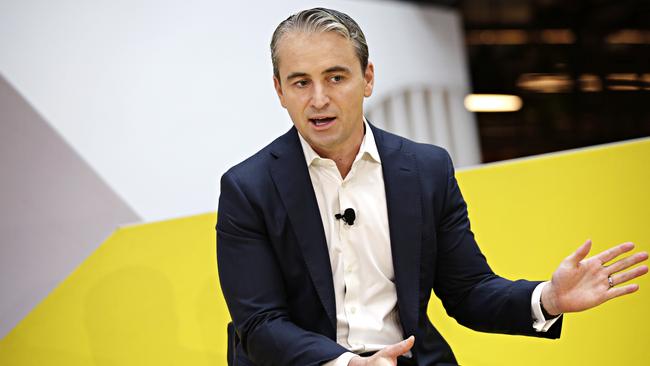Commonwealth Bank to assess selldown of Klarna stake, potentially releasing capital
Commonwealth Bank may soon start assessing whether to sell down its stake in buy now, pay later IPO candidate Klarna, in a move some analysts estimate may release up to $1.8bn in capital.

Commonwealth Bank may soon start assessing whether to sell down its stake in initial public offering candidate Klarna, a Swedish buy now, pay later firm, in a move some analysts estimate may release up to $1.8bn in capital.
In an official statement last week, Klarna said it had submitted a draft registration statement to the Securities and Exchange Commission in the US relating to the proposed IPO of its ordinary shares. The company noted the number of shares to be offered and the price range for the proposed transaction had “not yet been determined”.
CBA sought to gain exposure to the burgeoning BNPL sector in 2019 through an investment in Klarna, as Afterpay was gaining traction in Australia and offshore. The investment has proved volatile at times given the rapid ascension of BNPL before the sector came up against funding and earnings headwinds.
In 2019, CBA made an initial investment of $300m in Klarna, through two tranches, before topping up that holding to about $350m, or about 5.5 per cent of Klarna two years later.
In its most recent annual report, CBA valued its Klarna stake at $574m at June 30, up from $419m a year earlier. The valuation of CBA’s Klarna holding peaked at close to $3bn during the BNPL boom, before subsiding as interest rates began to rise in jurisdictions around the world.
Offshore analysts are putting a valuation of $US15bn ($23.2bn) on Klarna and suggest the company will aim to list in New York in the first half of 2025.
While a CBA spokesman declined to comment on the bank’s deliberations, it is understood CBA’s strategy team will begin assessing the holding if Klarna formally pulls the IPO trigger.
Using a potential Klarna IPO valuation of $US20bn, MST Marquee analyst Brian Johnson said if CBA sold its holding into a sharemarket float, the transaction could see as much as $1.8bn in capital released.
“Given (CBA’s) proprietary StepPay BNPL product we think (the) imperative to retain a 5.5 per cent stake in soon to be IPO’d Klarna (is) lessened,” he said.
CBA introduced its own BNPL instalment product dubbed StepPay in 2021, as Klarna struggled to gain traction in Australia and New Zealand.
However, the company has made inroads in other markets.

Klarna, led by CEO Sebastian Siemiatkowski, reported improved global adjusted operating income of 673 million Swedish krona in the first half, even as it was plagued by ructions that led to the removal of Mikael Walther from the board in October.
The company has 85 million customers and operates in 26 countries, giving CBA access to global markets for BNPL, payments, shopping and financial services and cash back. Klarna has this year had basketball great Shaquille O’Neal fronting some of its global marketing efforts.
When Klarna launched in Australia, Mr Siemiatkowski caused a stir when he lashed out at the fees Australia’s BNPL operators were charging retailers, labelling them unsustainable and an “extortion scheme”.
CBA chief executive Matt Comyn last week told the annual forum of the Australian Securities & Investments Commission the bank had invested in Klarna to get a foothold in the burgeoning BNPL sector.
Besides its founders, employees and CBA, Klarna’s other investors include venture capital firm Sequoia Capital, private equity group Permira, Japan’s SoftBank and Singapore’s sovereign wealth fund GIC.
If Klarna does proceed with a listing, it would follow the float of fintech and BNPL player Affirm Holdings in 2021. Affirm’s shares were changing hands at $US56.15 on Monday, above an IPO price of $US49.
Australia’s BNPL behemoth Afterpay was acquired by US group Block, after the former’s shareholders signed off on a transaction in late 2021.
While Mr Comyn and CBA’s board will closely watch developments regarding Klarna, they have been divesting or selling down some of the bank’s other offshore holdings in recent years.
In September, CBA said it would book a $160m windfall from its sale of a 5 per cent stake in Vietnam International Commercial. The bank also booked a windfall in 2020 from the divestment of its holding in China’s BoCommLife Insurance Company.
CBA’s shares closed almost 1.4 per cent lower on Monday at $153.02, bucking a 0.2 per cent gain in the S&P/ASX 200. The stock is just shy of record levels.






To join the conversation, please log in. Don't have an account? Register
Join the conversation, you are commenting as Logout